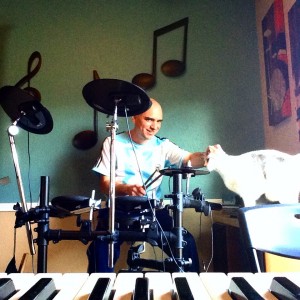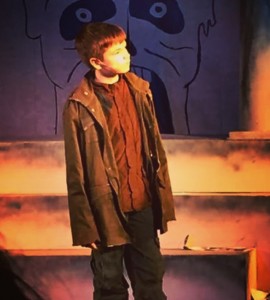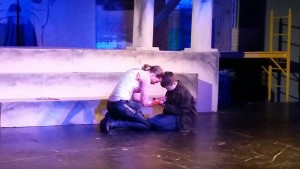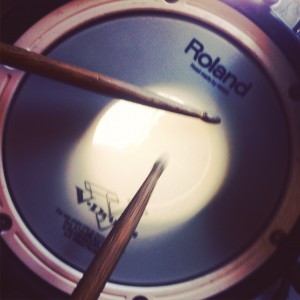The following “month in review” is penned by our Marketing Wiseapple, Chris Buchanan. It is a blend of professional and personal observations and is presented for general interest and entertainment only.
It has been said that the difference between living and mere “existence” can be summarized in the notion of eating a peach rather than consuming it. It’s savoring each bite as opposed to absently noshing. There are some who pray before they eat, and others who pray as they eat: with each bite they are mindful of the source of the sustenance, its impact on their body, and how, re-energized, they can commit meritorious acts. I have attempted to carry the latter into my regular conduct and thus far have met with strikingly little success, for I am not practiced at this level of concentration. At present, the best I can do is say, “live in the moment”…and once in a great while, I’ll catch myself doing just that.
March 2016 stood out as a reminder of the value of the ephemeral: living in the present, in the moment. Not seeking to recapture or relive feelings with overt sentimentality, but making the most of the here and now. While I’m a proponent of a certain degree of structure, routine, and even ritual, without spontaneity these concepts can make for dull days and forgotten yesterdays. Special events create lasting impressions, as fireworks burn brightly in our memories long after their trails have blazed away and the smoke has cleared.

Such special events took place early in the month, beginning with our participation on Friday, March 4 in the Collin College 2016 Health and Safety Fair. As can be imagined, our focus here was educational: letting the general public know the benefits of healthy snacking rather than espousing the merits of office fruit delivery. No, that was our assignment on Thursday, March 10 when we were able to carry our message of Wellness Delivered to the Dallas Business Journal 2016 Healthiest Employers in North Texas awards luncheon. As I’ve already devoted a fair amount of column inches to impressions and observations, I shan’t repeat them here. (That’s the beauty of hyperlinking.) Suffice it to say each event was special in its own right.
One component of my private life which I will detail throughout these blogs is my foray into the world of drumming. I’ve been a guitarist for about thirty years now, with just enough skill to be an effective teacher but certainly (and perhaps fortunately) neither the acumen nor the temperament to be an entertainer. I didn’t start drumming properly until just before the age of 41, and that was only because my secondary employer at the time, the 4/4 School of Music in Plano, needed me to teach a multitude of instruments as they were short-staffed (no pun intended). This necessity sparked an infatuation which has bordered on obsession, a daily ritual which not only provides a certain catharsis from the basic stress of living but also gives me a goal – a skill to get good at.

The reason I’m going on this narrative tangent is to illustrate a point using different approaches to music. I’d grown up a fan of the genre of music labelled”progressive rock” (often shortened to “prog” pejoratively). My high school anthems were the long-form compositions of bands like Yes, Genesis, and Rush. Myself, I always preferred the term “orchestral rock”: what I admired and adored about their approach was that they created compositions (as opposed to simple “songs”) structured in a similar fashion to orchestral pieces: harmonies, melodic variations, different movements, expansive instrumentation. But as they used rock instruments, there was that energy unique to modern music. The players were all musicians of the highest caliber, and the tunes were often vehicles for bringing their talents to the fore – challenging exercises that were incredibly difficult and so, in live performance, the fun was to hear them “pull off” these challenges on a nightly basis. I knew that Neil Peart was the best drummer I’d ever heard, because he wrote amazing parts and replicated them with superhuman precision. The intrigue was in the repetition.
Now, this notion – infatuation with repetition – speaks to the heart of how Americans (and the UK to a large extent) consume their entertainment. By and large, the emphasis is on the recording – because that is what is marketable. Most songwriters subconsciously write with an ear for how it will sound in the studio, and with a producer’s assistance, all the effort and expense goes into making it a recorded artifact. It’s all about how to capture the moment. Wedding outfits are often chosen according to what will make for the best photographs, for after all the pictures are what remain long after the corsages wilt and the cake is eaten. In any event, we film, we video, we record, we store, so that it can, in theory, be re-lived. This is our primary emphasis, particularly in American culture, and there is absolutely nothing wrong with this.
But there is another world, another approach to art, which exists purely in performance. It is not meant to be recorded, it is meant to exist purely for the audience at that particular moment. It is in fireworks, it is in jazz. It is in theatre.

On March 15 – the Ides of March – the Plano Children’s Theatre began a run of six performances of Shakespeare’s Julius Caesar, directed by the incomparable Becca Johnson-Spinos. The cast consisted of young actors from grades 6-12, and my experience has been that the only difference between a determined and talented teen actor and a professional is their pay grade. A prodigiously-skilled amateur, given the proper direction, can spellbind an audience as effectively as an above-the-line with an agent and a film franchise to their credit.
Because my youngest stepson, Calin, was in this performance (pictured above as Lucius – and while the dialogue was all Shakespeare, the setting was reimagined as a zombie-apocalypse Rome), I am of course biased and would give top praise for the production. But I feel completely justified in doing so, because everyone involved, onstage and off, seemed to sense they were part of something really special and consequently put their all into it. Theatre exists only one performance at a time, for the audience in attendance, and that is what imbues it with its unique charm and magic. That’s why pretty much every actor worth their salt makes Broadway a goal. To quote professor Bill Bruford (who shall be referenced again shortly), “if you want to learn tennis, your goal isn’t to play at the club down the street. Your goal is Wimbledon.” As great as the recorded mediums of television and film (or their internet-specific counterparts) can be, the best acting happens on a live stage, where there are no re-takes, interaction with the audience is immediate and dynamic, the moment exists and then it moves on.
At the end of the run of Julius Caesar, there was nary a dry eye amongst the cast and crew. It was the impermanence that made them all aware that they’d shared a special bond, that time marches on…but in that time, they’d done something amazing.

One challenge I’ve learned to accept with ORCHARD At The OFFICE is the notion that agrarian-driven processes have a similarly ephemeral nature. Fruit is eaten and enjoyed, and the next week while the process is repeated, as the fruit (and in some cases the consumer) is not the same, the experience can’t be replicated. Quality must be assured but not through some assembly-line process of “if we do x, with fruit from y, we will always get outcome z.” Like all things, fruit is perishable, but more immediately so than, say, an automobile or a computing platform. We want to make sure all our deliveries are great, but some weeks will be greater than others…and when those happen, we can’t rest on our laurels. Each day presents new challenges and opportunities to provide the best. At times, this calls for improvisation.
At the heart of jazz music is improvisation. A true American invention, this style has for over a century existed to celebrate the immediacy of the moment. Generally speaking, jazz compositions exist to facilitate the solos. As a result, two-minute melody may create a ten-minute piece by this quartet on this night, and the same melody may lead to a half-hour exploration by a trio in a different club just up the road. Jazz musicians respond to one another, and their inner voice, and to do so requires the greatest musicianship. All my life, as a “drummer-wanna-be”, I aspired to play like Neil Pear. But when I actually started drumming, I found that completely without intention or design, I was drawn to (and learning from) the drumming of Bill Bruford (Yes, King Crimson, Earthworks), who was well-renowned for applying his jazz background in progressive rock contexts before eventually giving himself entirely over to the jazz world. When everyone else was doing exactly the same thing every night in jaw-dropping fashion, he was bending the rules, seeking to look beneath unturned rocks. This groundbreaking style earned him a host of accolades before he retired in 2009, going on to become a professor at the University of Surrey – Guildford.

In the world of jazz, records are nearly always seen as a mere snapshot. Thelonious Monk would record “Straight, No Chaser” for a 1952 album and it would bear little resemblance to a recording five years later, let alone fifteen. Live performance is where it’s at. While soloists may have a general direction in mind, just as fireworks may be constructed so they can light up the sky in a particular way, only those who observe them will have that experience. There will be nuanced differences based on causes and conditions, impressions and inflections, mistakes or whims. Pyrotechnicians tend to be well-versed in science as the danger element is so high. Jazz musicians must have the finest chops in order to act and react in the moment.
The above shot has me working on a basic six-stroke rudiment because I’ve learned that to master a musical instrument, I need to master the fundamentals. I am eternally grateful to my musical instructors who have guided me and given me accountability, just as I am grateful to Ms. Becca for directing Calin’s theatrical work, and Sensei McCurrach at the Texas Association of Shotokan Karate for elevating my oldest stepson Mike’s martial arts over the years. For without a whetstone, even the sharpest blade will dull.

So that’s what March has meant for me: living each moment to the fullest, for who knows what may come tomorrow? The Dallas / Fort Worth area was given a stark reminder of this on March 23, when in the early evening a good portion of the Metroplex experienced golfball-sized hail. I’d encountered numerous hailstorms in my time, enough to make me rather blasé about their capacity to inflict damage. Two severely dented automobiles, a cracked windshield and a totaled roof were enough to force me to revise my estimate.
Certainly we fared better than most, and given the destruction that had happened to our eastern neighbors in Rowlett when a tornado decimated the town on December 26, 2015, we’ve viewed our own losses as a simple inconvenience, nothing more. A few dents is nothing compared to eradication of entire neighborhoods, and indeed efforts are still ongoing to restore Rowlett to its former status. The important lesson for us was that mother Earth contains forces violent in their power…making the fruits of her land, and the moments we have to enjoy them, all the sweeter.



